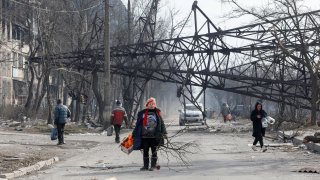
Local residents walk near a fallen electricity pylon and an apartment building destroyed in the course of Ukraine-Russia conflict in the besieged southern port city of Mariupol, Ukraine March 25, 2022.
This is CNBC's live blog tracking developments on the war in Ukraine. See below for the latest updates.
Ukraine's President Volodymyr Zelenskyy pleaded with the U.N. Security Council to act against Russia, saying it was responsible for a "crime against humanity" as Ukraine continues to suffer relentless missile strikes against its energy infrastructure.
Watch NBC6 free wherever you are
Millions of civilians in Ukraine are living without power, water or heat as Russia continues to pound the country's energy facilities as cold temperatures set in. Ten people died yesterday as a result of further shelling, one Ukrainian official said, with Zelenskyy saying Russia had fired 70 missiles at civilian infrastructure.
"When we have the temperature below zero, and further millions of people stay without energy supplies, without heating, without water, this is an obvious crime against humanity," he said.
Get local news you need to know to start your day with NBC 6's News Headlines newsletter.
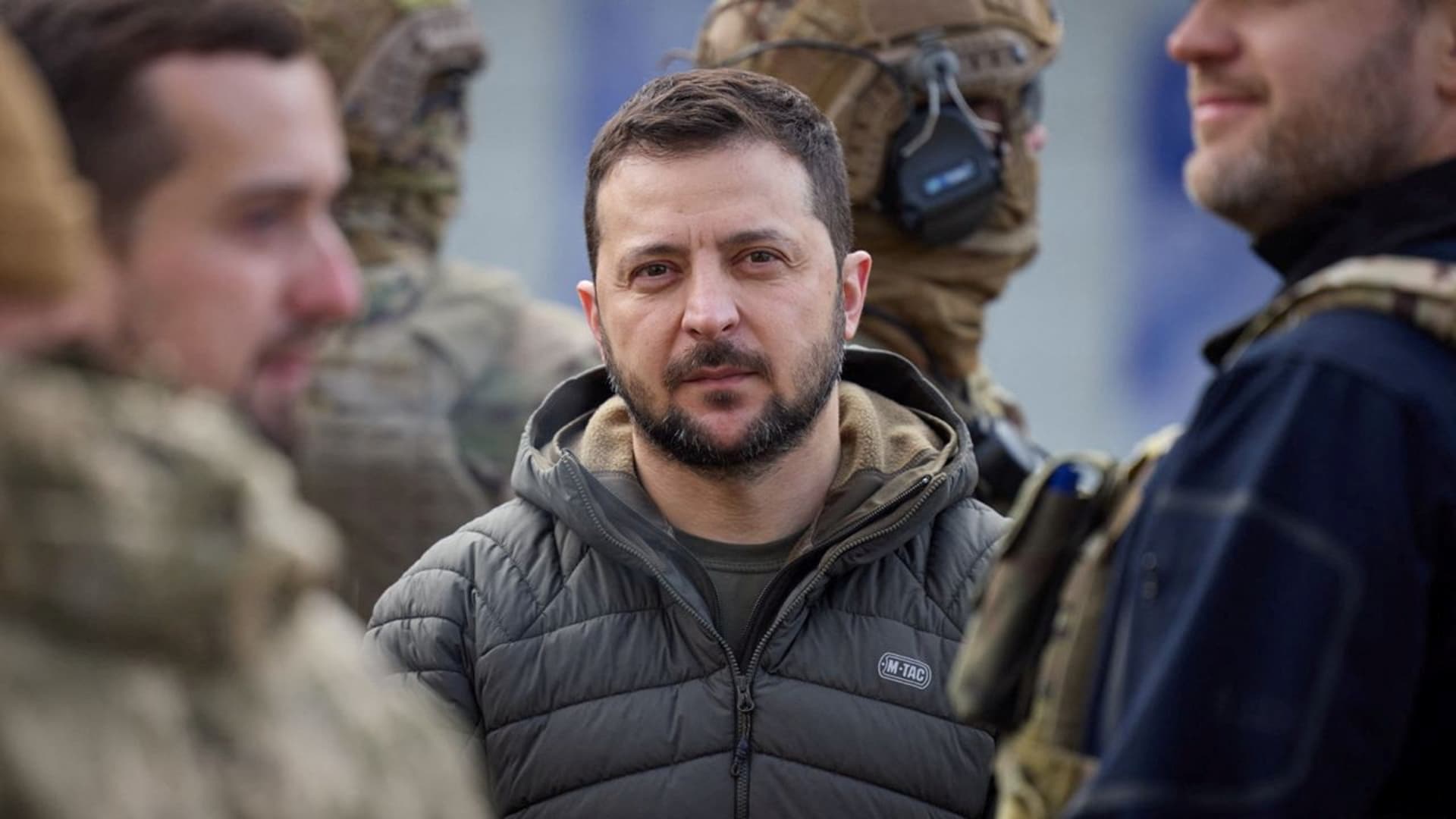
An official said later that about 70% of the Kyiv region is without power after the Russian shelling.
Ukraine wanted to see "a very firm reaction" to Wednesday's airstrikes from the world, Zelenskyy added as he called upon the council to "make specific steps to protect humanity and life."
Money Report
The U.S. Representative to the United Nations, Ambassador Linda Thomas-Greenfield, told the council that such attacks on infrastructure are a "shameful escalation in Russia's already brutal, unjustifiable war."
The council has limited powers to act, however, as Russia is one of five permanent members with a veto over any resolutions.
About 70% of Kyiv remains without power due to Russian shelling, Ukraine says
The head of Kyiv's regional government reiterated that approximately 70% of the regional government remains without electricity.
Oleksiy Kuleba also said that the death toll from recent Russian airstrikes rose to seven, according to an NBC News translation.
Rockets rained down on Kyiv and several other Ukrainian cities on Wednesday, less than 24 hours after officials said a newborn became one of the youngest victims of Russian President Vladimir Putin's war.
— Amanda Macias
50 mass grave sites found in recently liberated Ukrainian cities, Kyiv says
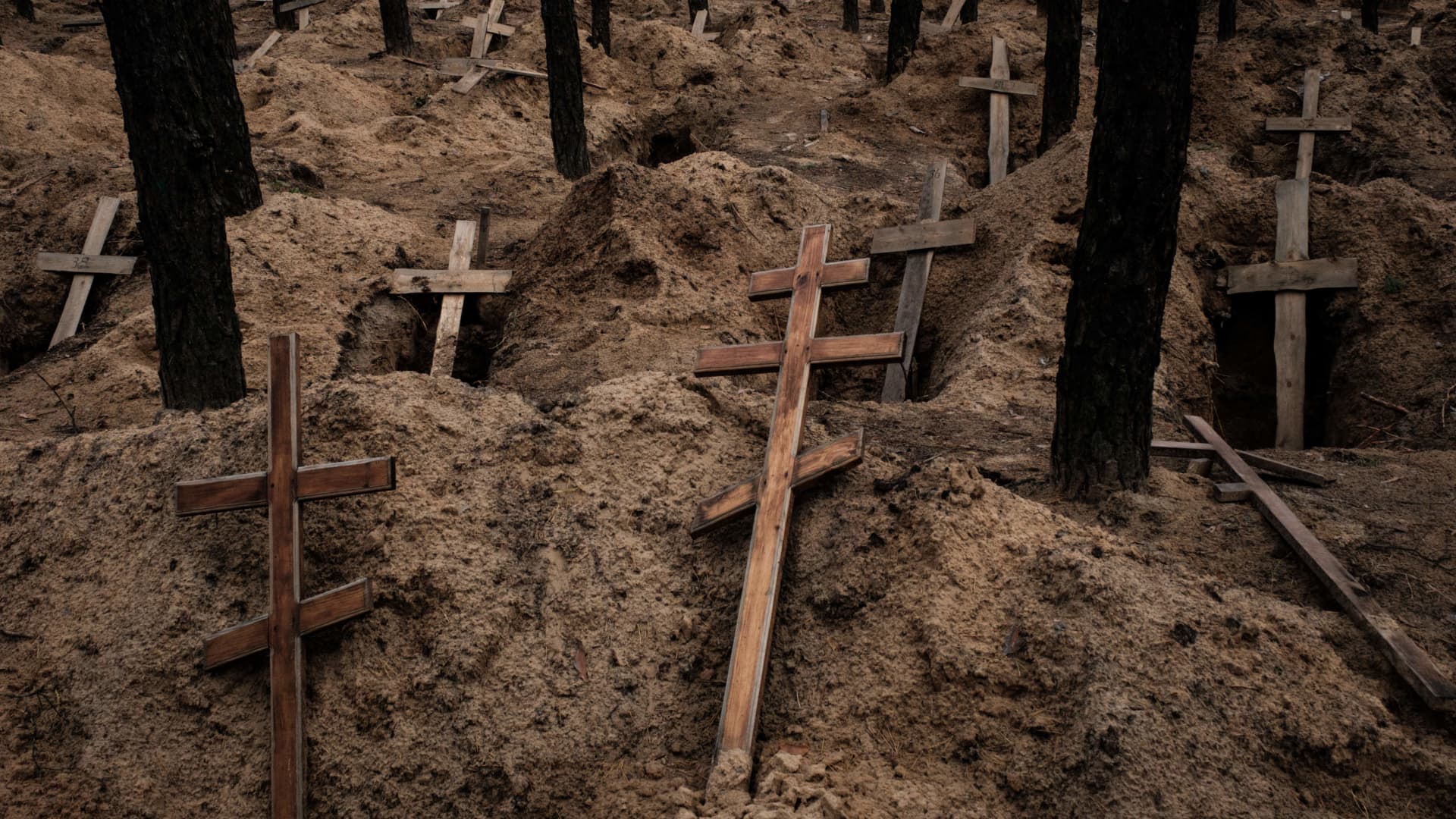
The Ukrainian government said investigators found 50 separate locations of mass graves in the recently liberated areas of Mykolaiv and Kherson.
"In the liberated territories of the Mykolaiv and Kherson regions, 50 locations of probable burials have been examined," the government wrote on the Telegram messaging app, according to an NBC News translation.
"Search teams identified the bodies of about 200 victims," the message added.
The Kremlin has previously denied claims that its forces have used mass graves in areas that were once heavily occupied.
— Amanda Macias
Backlog of 79 ships waiting to transport crops from Ukraine
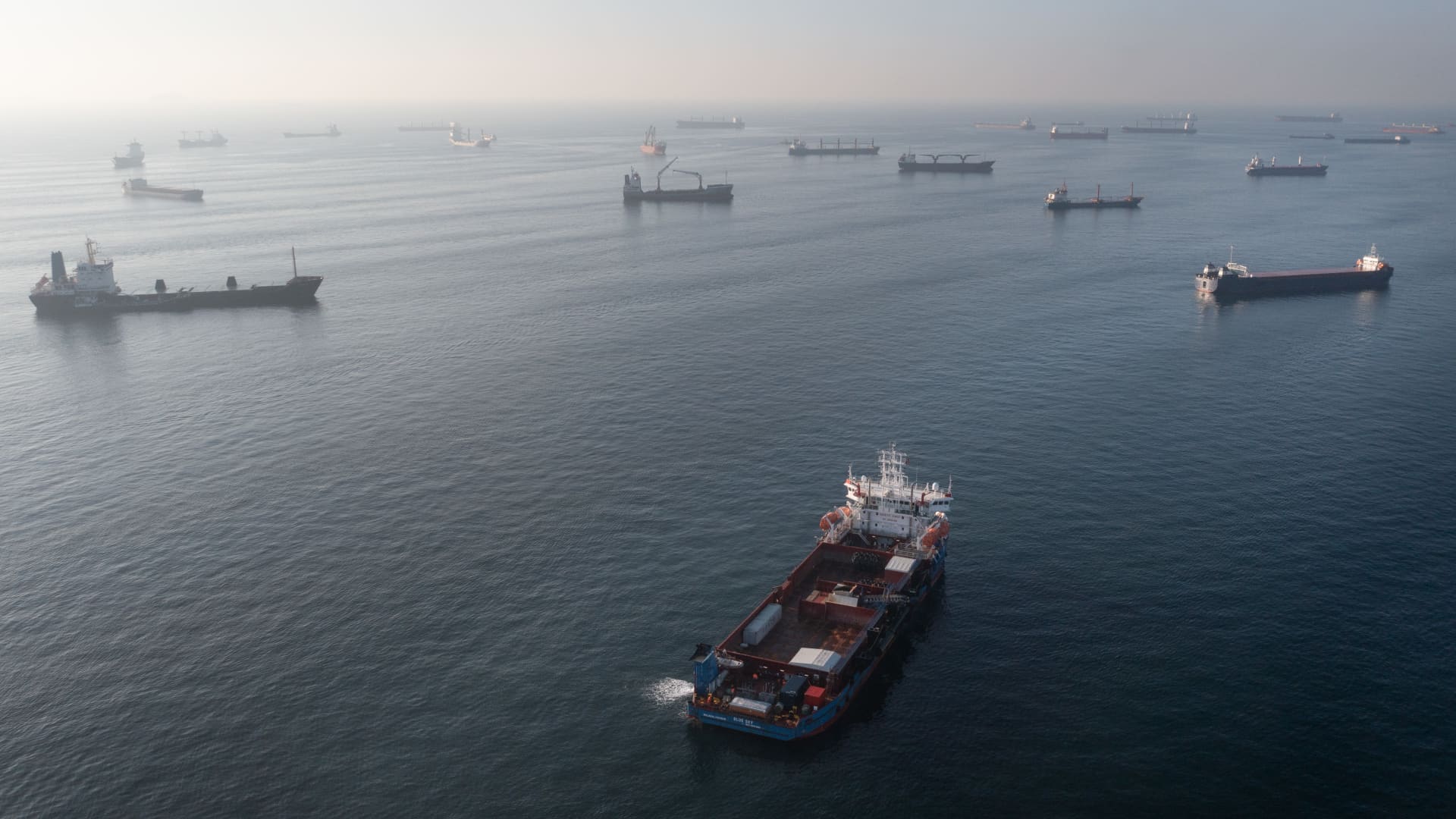
The organization overseeing the export of Ukrainian crops said there is a backlog of 79 vessels waiting to be loaded with cargo.
The U.N.-led Joint Coordination Center also said that about 110 loaded vessels are waiting for inspection in Turkish territorial waters.
The Black Sea Grain Initiative, a deal brokered in July among Ukraine, Russia, Turkey, and the United Nations, eased Russia's naval blockade and saw the reopening of three key Ukrainian ports.
Since the deal was signed, more than 490 ships carrying 11.8 million metric tons of grain and other food products have left for destinations around the world.
Kyiv has previously blamed Moscow for holding up inspections and delaying vessel movements.
— Amanda Macias
More than 7.8 million Ukrainians have become refugees from Russia's war, U.N. estimates
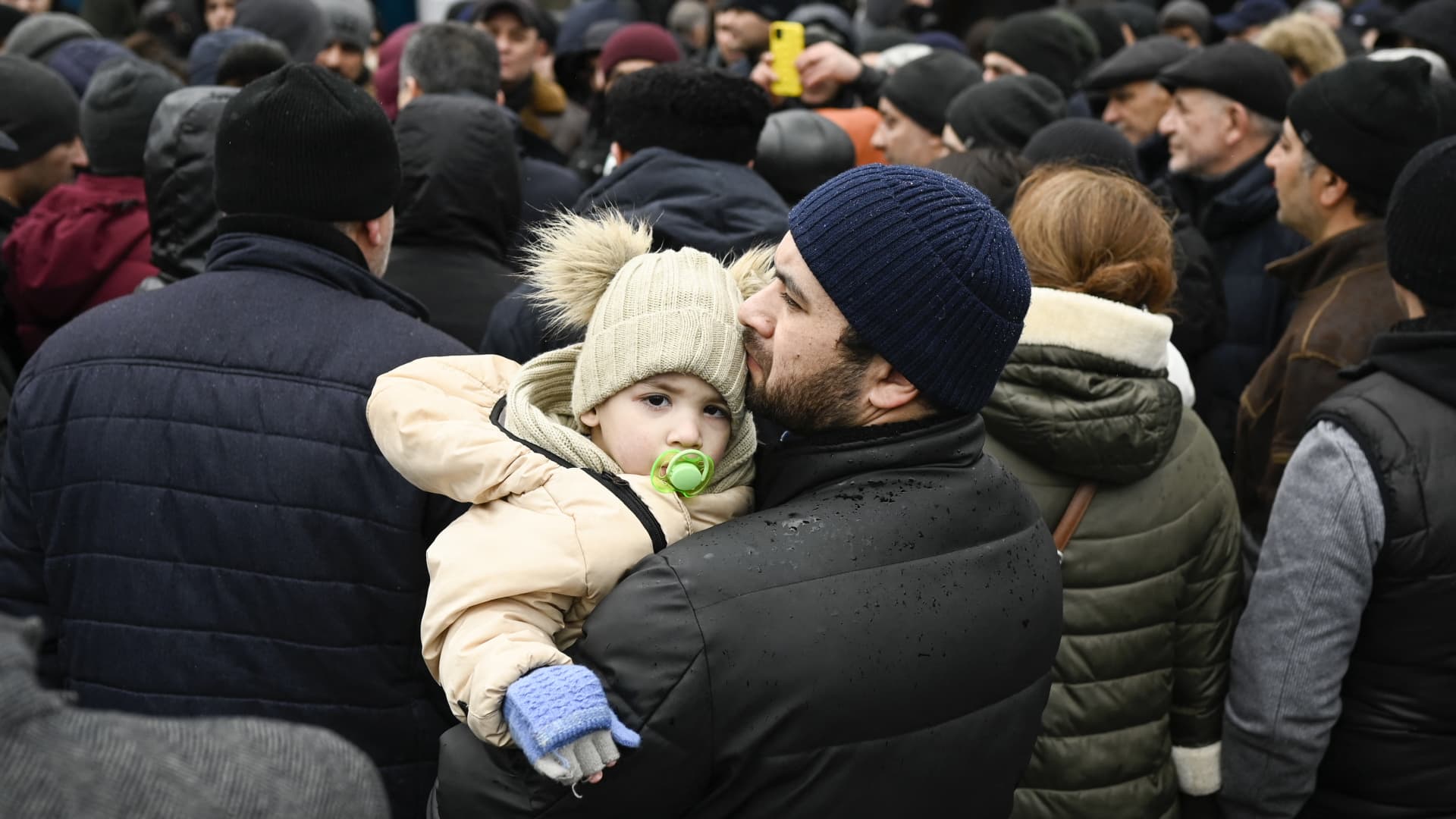
More than 7.8 million Ukrainians have become refugees and moved to neighboring countries since Russia invaded Ukraine in late February, the U.N. Refugee Agency estimates.
Nearly 5 million of those people have applied for temporary resident status in neighboring Western European countries, according to data collected by the agency.
"The escalation of conflict in Ukraine has caused civilian casualties and destruction of civilian infrastructure, forcing people to flee their homes seeking safety, protection and assistance," the U.N. Refugee Agency wrote.
— Amanda Macias
50 Ukrainian prisoners of war returned by Russian forces, Zelenskyy's office says
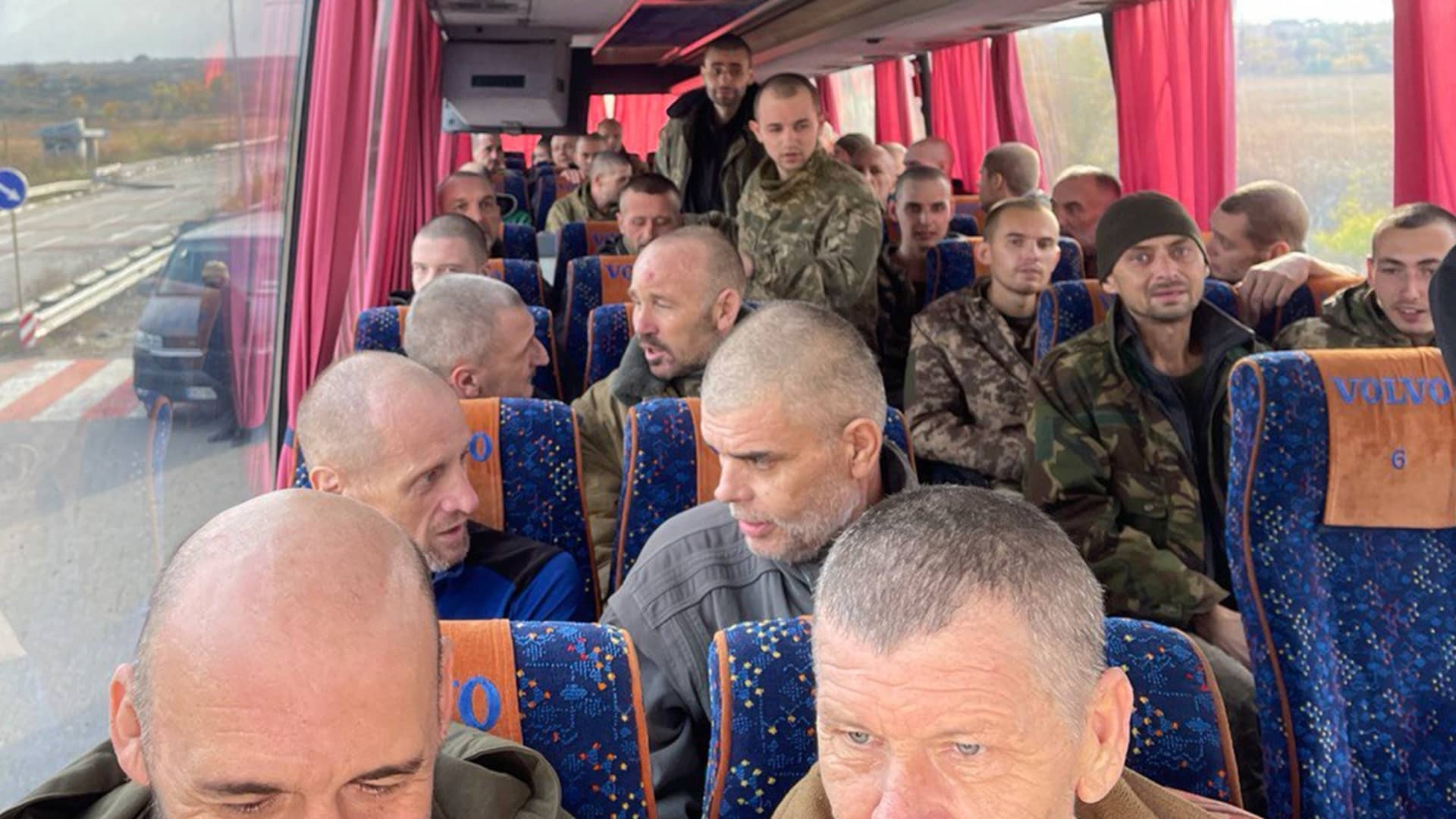
Andrii Yermak, the head of Ukrainian President Volodymyr Zelenskyy's office, said that 50 Ukrainian prisoners were returned by Russian forces.
Yermak added that nearly half of the former Russian prisoners of war were captured while defending Mariupol. He added that 15 Ukrainian prisoners were returned from the Chernobyl nuclear power plant and seven from Zmiiny Island.
"We continue to work on the liberation of all our people from captivity. I thank the coordinating staff on the treatment of prisoners of war for the work done," Yermak wrote on the Telegram messaging platform, according to an NBC News translation.
"We will return everyone," he added.
— Amanda Macias
Kyiv awards former British prime minister Boris Johnson honorary citizen title
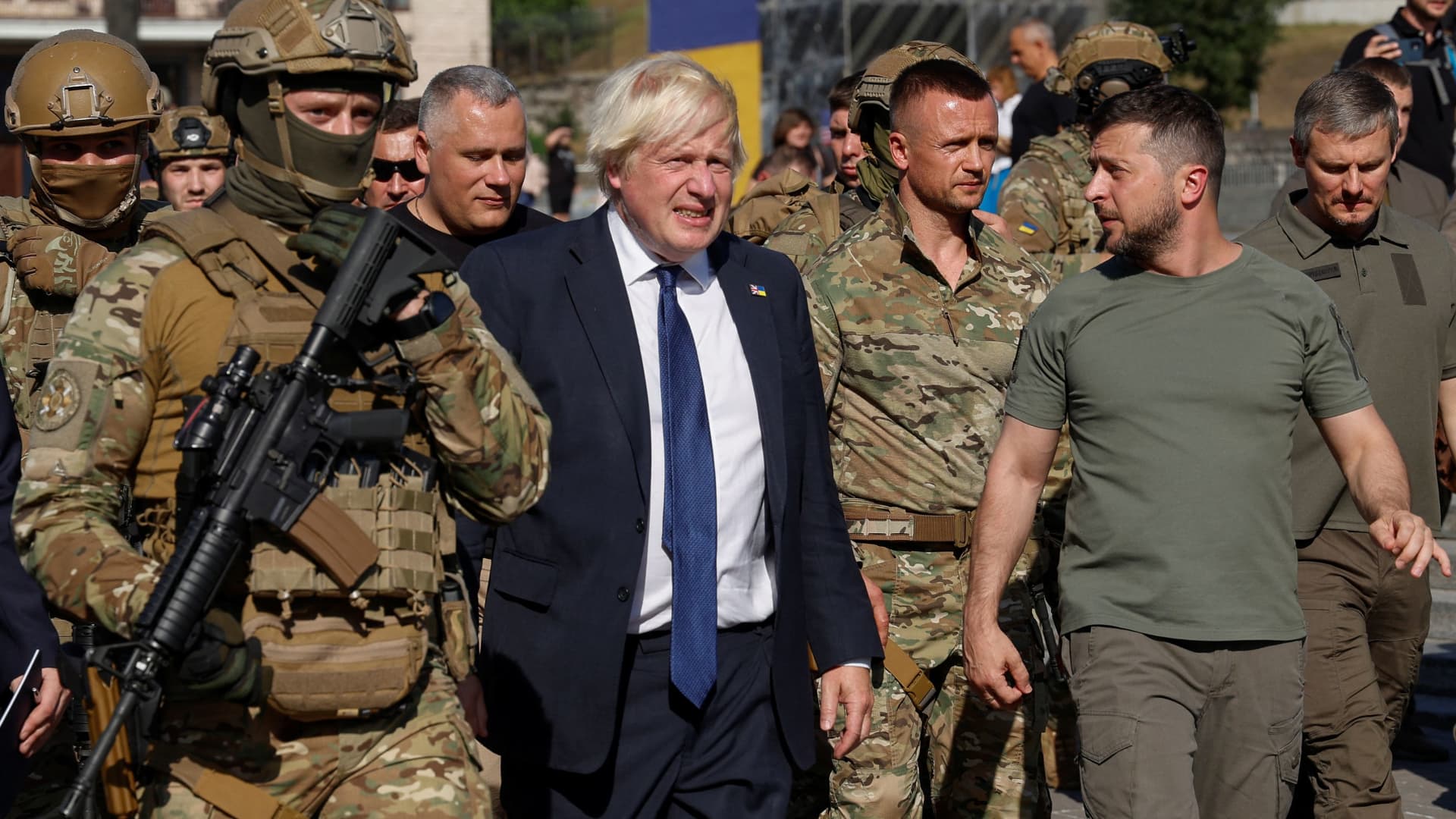
The mayor of Kyiv announced that former British Prime Minister Boris Johnson was awarded honorary citizenship of the Ukrainian city.
"Boris repeatedly visited the Ukrainian capital both in peaceful times and in the most dramatic time of our struggle against the Russian aggressor. Johnson has done and, I am sure, will continue to do everything possible to ensure that Great Britain and world leaders provide the necessary assistance to Ukraine," wrote Vitali Klitschko, Kyiv city mayor, on the Telegram messaging platform.
Johnson, who was one of the first world leaders to visit Ukrainian President Volodymyr Zelenskyy in Kyiv following Russia's invasion, quickly became one of the most visible Western supporters of Ukraine.
— Amanda Macias
Nearly 500 ships carrying 11.8 million metric tons of agricultural goods have left Ukrainian ports, UN says
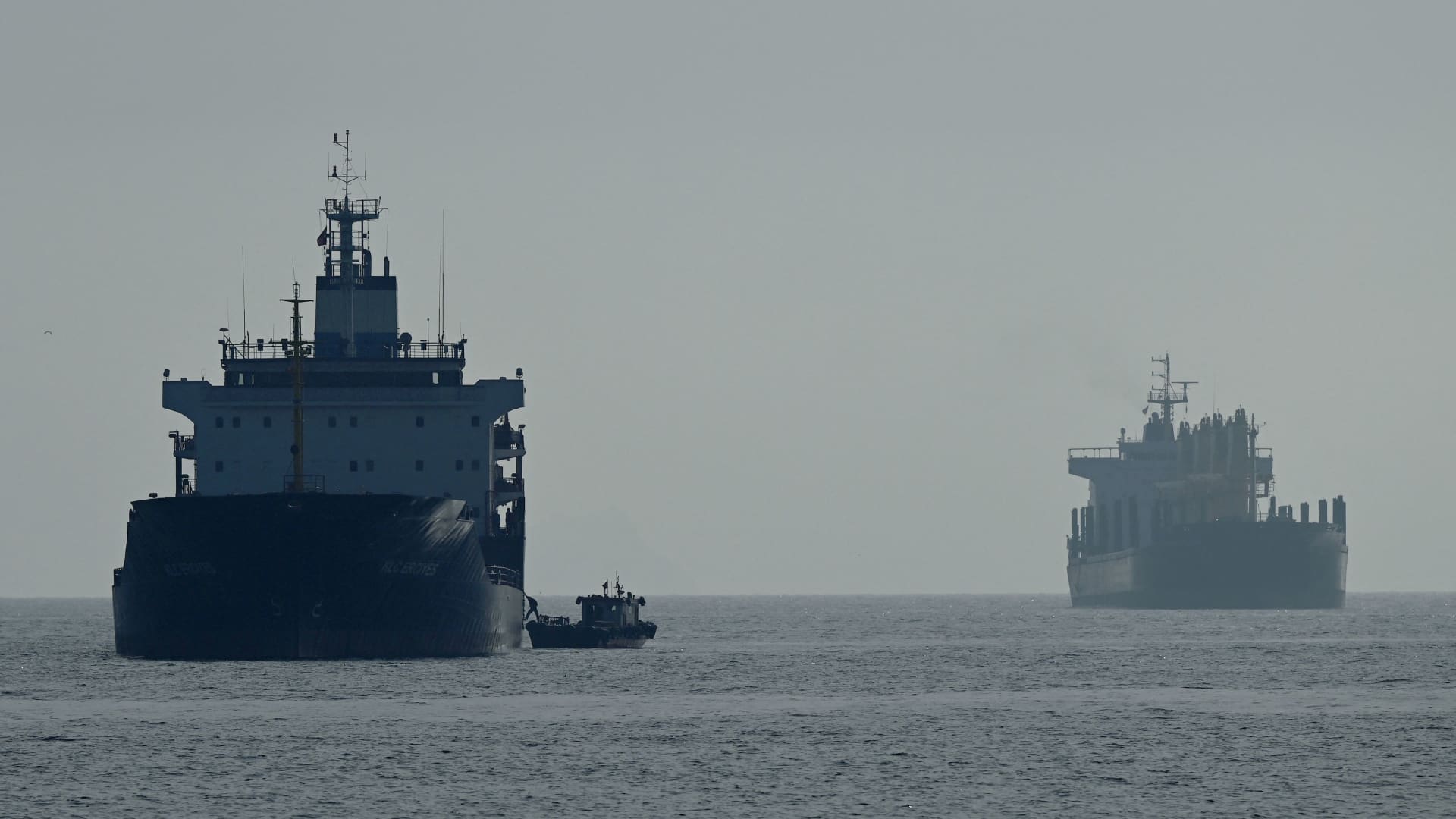
The organization overseeing the export of agricultural products from Ukraine said that more than 490 ships have transported 11.8 million metric tons of goods so far.
Before Moscow's full-scale invasion of its ex-Soviet neighbor, Ukraine and Russia accounted for almost a quarter of global grain exports, until those shipments came to a severe halt for nearly six months.
The Black Sea Grain Initiative, a deal brokered in July among Ukraine, Russia, Turkey and the United Nations, eased Russia's naval blockade and reopened three key Ukrainian ports.
The deal between the signatories is set to expire in about four months.
— Amanda Macias
Ukraine reportedly warns that Russia is planning provocations on Belarusian soil
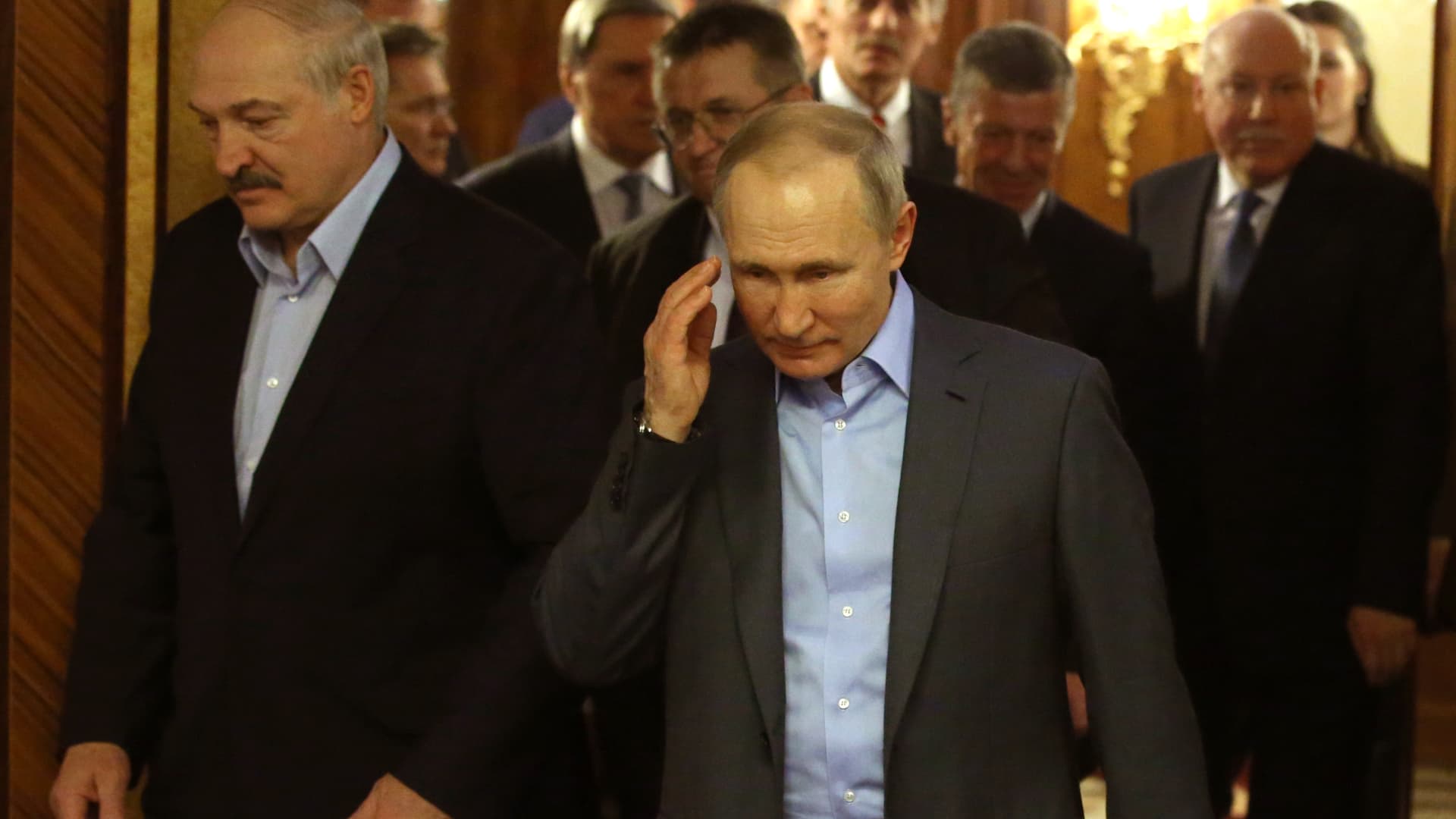
Ukraine's armed forces said Russian intelligence is preparing provocations on Belarusian soil in a bid to provoke Minsk into joining the war.
The Facebook page of the General Staff of Ukraine's armed forces posted a video in which it warned Belarusians that "the special services of the Russian Federation are plotting provocations on your territory. The target of their terror attacks may be objects of critical infrastructure, in particular the Ostrovets NPP [nuclear power plant]," Ukrainian news agency Ukrinform reported.
The General Staff said Russia's aim was to coerce Belarus to join its ally Russia in fighting the war against Ukraine "by any means." Ukraine insisted that it does not consider Belarus an enemy, however.
"Ukraine does not consider your country, let alone your people, as an enemy... We do not intend and neither do we plan to carry out any aggressive actions on the territory of the Republic of Belarus. This is the official position of Ukraine. Today, a lot depends on each person. We hope for your vigilance and understanding of the situation," said the General Staff of the Armed Forces of Ukraine.
Ukraine's armed forces did not state what evidence it has to back up its claims. It has previously stated that it believes Russia could look to drag Belarus into the war, however, and that a "false flag" attack could be used to do so.
— Holly Ellyatt
Kremlin says Kyiv can end 'people's suffering' by meeting its demands
As millions of Ukrainians struggle with power, heat and water shortages as a result of Russian missile strikes, the Kremlin has said that Kyiv can end "people's suffering" by meeting its demands.
"The leadership of Ukraine has every opportunity to bring the situation back to normal, has every opportunity to resolve the situation in such a way as to fulfill the requirements of the Russian side and, accordingly, stop all possible suffering of the civilian population," Dmitry Peskov, the Kremlin's spokesman, told reporters Thursday, Russian state news agency Tass reported.
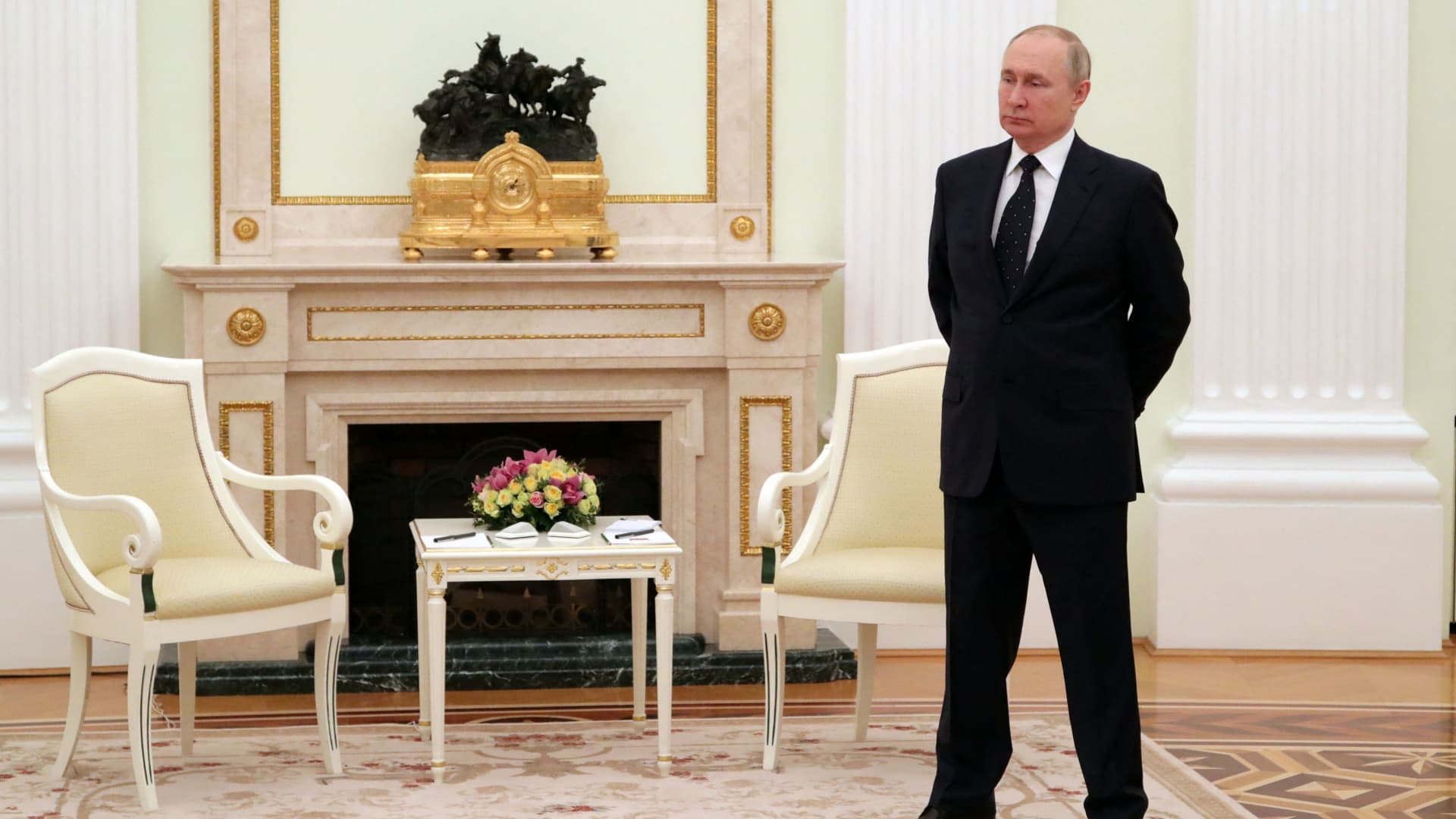
Peskov did not reiterate what Russia's demands are, and these have changed at various points during the conflict, and in the months leading up to it when Moscow demanded that NATO roll back its deployments to eastern Europe, and agree that Ukraine would never be admitted to the military alliance.
Then, when Russia invaded Ukraine in February, it said its aims were to "demilitarise and de-Nazify Ukraine," promoting a false and baseless accusation about Kyiv's leadership. It later changed its war aims to the "liberation" of Donbas, in eastern Ukraine, where two pro-Russian separatist "republics" are based. Ukraine has said it will not stop fighting until it has reclaimed all of its territory that's occupied by Russian forces.
— Holly Ellyatt
Russian attacks create real danger of 'nuclear and radioactive catastrophe'
Russia created a "real danger of a nuclear and radioactive catastrophe" after attacks Wednesday that prompted all of Ukraine's nuclear reactors to be disconnected from the power grid.
It marked the first time this had happened in 40 years, Petro Kotin, the head of Ukraine's nuclear power company Energoatom, said in a statement Thursday.
"Yesterday, November 23, 2022, a sad event took place in the history of the Ukrainian nuclear power industry. As a result of a decrease in frequency in the power system due to damage to the power infrastructure, emergency protection was triggered at the Rivne, South Ukrainian and Khmelnytsky NPPs [nuclear power plants]," he said on Telegram.
"All power units of these stations were automatically disconnected from the power grid. The temporarily occupied Zaporizhzhia NPP, which has been inactive since September of this year, went into full blackout mode with the start-up of all diesel generators. Thus, for the first time in the 40-year history of the Ukrainian nuclear power industry, all NPP power units were shut down," Kotin said.
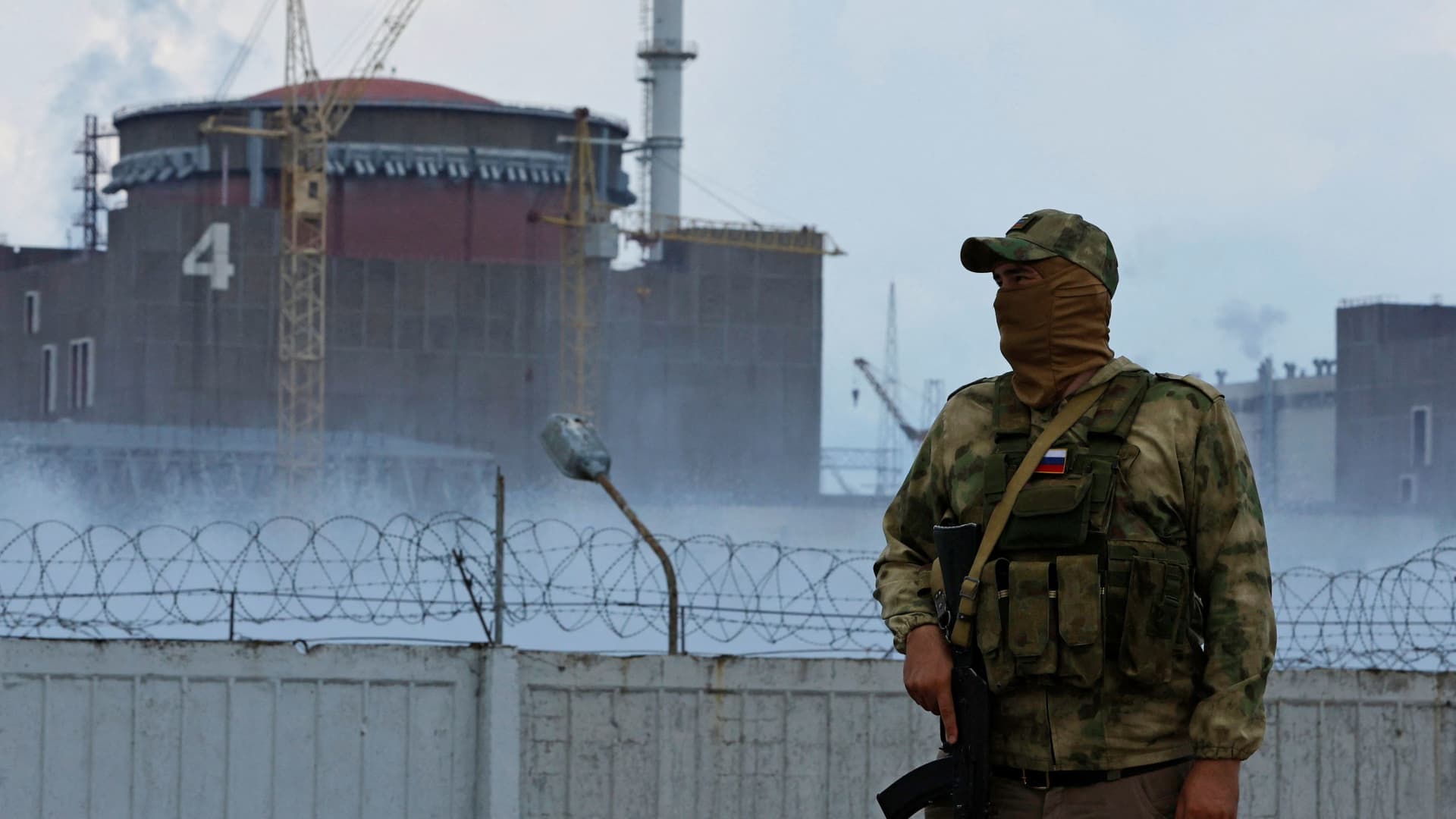
He added that while NPPs were equipped with reliable safety systems and staffed with experienced personnel, "this should not be reassuring."
"After all, there is a real danger of a nuclear and radiation disaster, which is caused by the shelling of the entire territory of Ukraine by Russian cruise and ballistic missiles, and a huge risk of damage to nuclear plants," he warned.
The Zaporizhzhia nuclear powerplant, Europe's largest, had been reconnected to the national power grid after Russian air strikes yesterday, he noted.
— Holly Ellyatt
EU preparing 9th Russia sanctions package, von der Leyen says
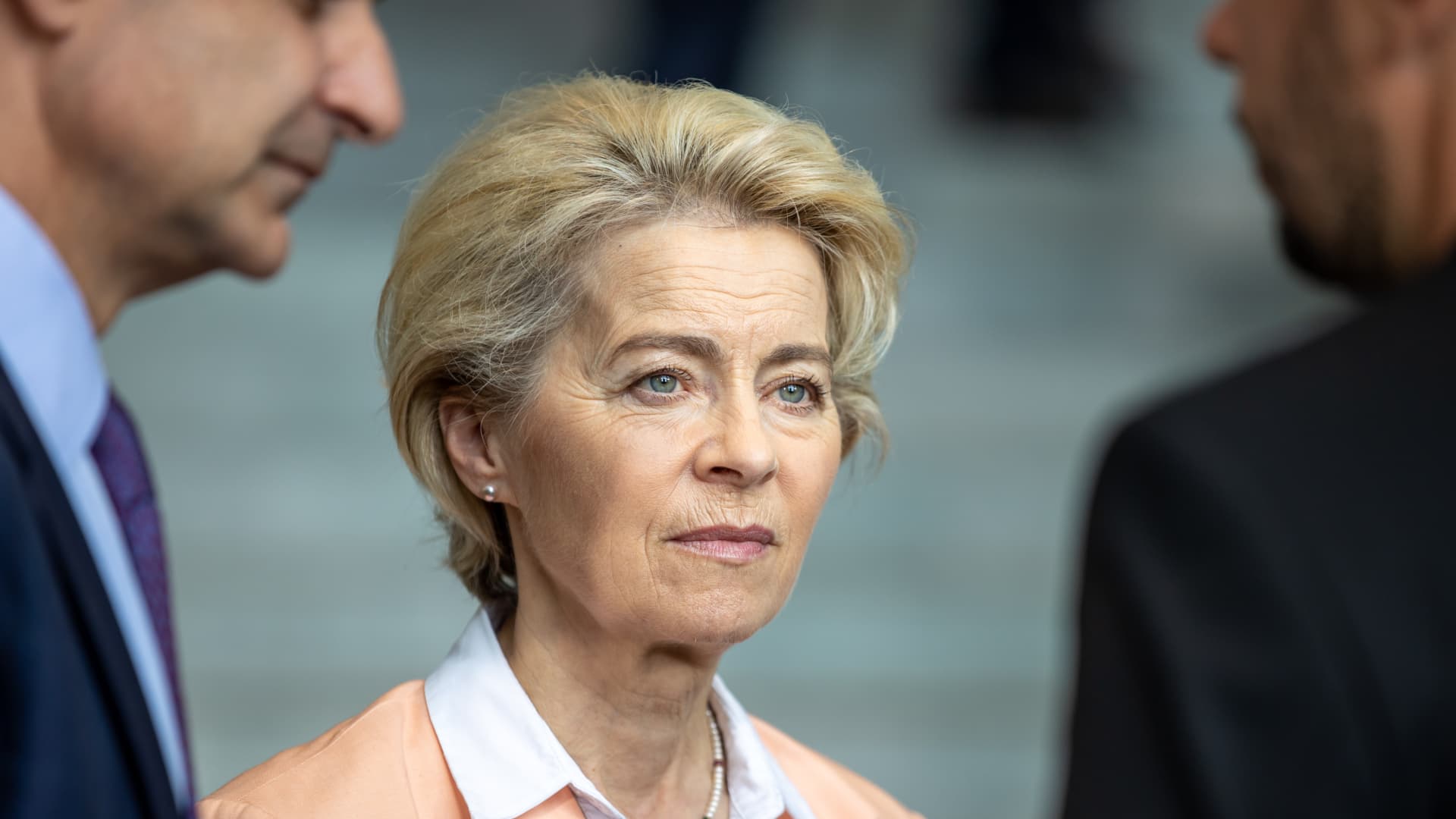
The European Union is pressing ahead with a ninth sanctions package on Russia in response to Moscow's attack on Ukraine, European Commission chief Ursula von der Leyen said during a visit to Finland on Thursday.
"We are working hard to hit Russia where it hurts to blunt even further its capacity to wage war on Ukraine and I can announce today that we are working full speed on a 9th sanctions package," von der Leyen told a news conference.
"And I'm confident that we will very soon approve a global price cap on Russian oil with the G7 and other major partners. We will not rest until Ukraine has prevailed over Putin and his unlawful and barbaric war," she said.
— Reuters
Russia has likely redeployed airborne forces to eastern fronts, UK says
In the past fortnight, Russia has likely redeployed the main units of its airborne forces (or VDV) to the Donetsk and Luhansk fronts, according to the U.K.'s Ministry of Defence.
In its latest intelligence update, the ministry said that from September to October most of the VDV units were dedicated to the defense of Russian-held territory west of the Dnieper river in the Kherson region.
Since the Russian withdrawal from the western bank of the Dnieper earlier in November, however, most of these troops had likely been moved to eastern Ukraine where the fighting remains intense in the Luhansk and Donetsk areas of the Donbas region.
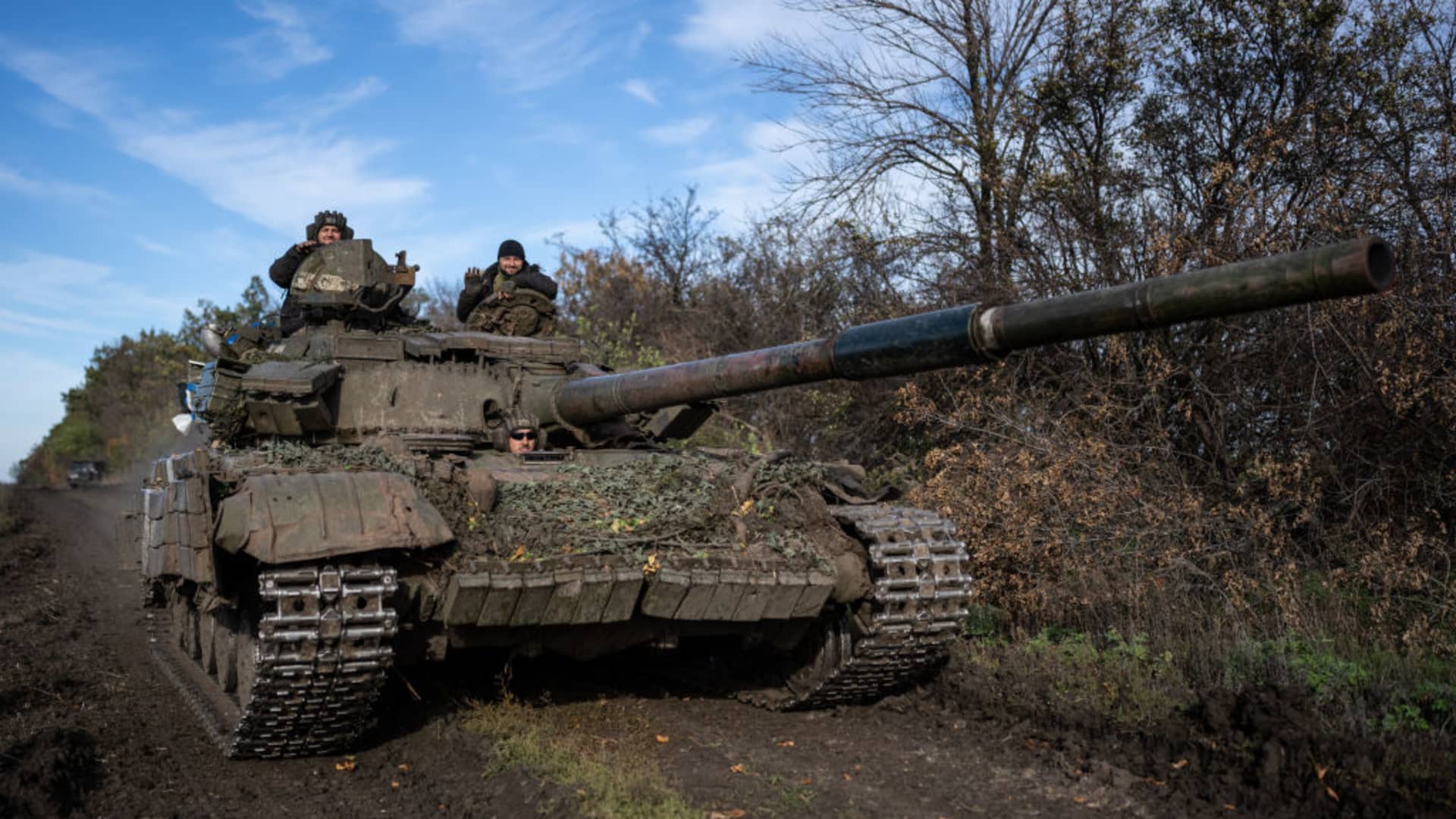
"Some VDV units have likely been reinforced with mobilised reservists. Although these poorly trained personnel will dilute VDV's supposedly elite capability, Russia will likely still allocate these units to sectors deemed especially important," the ministry said.
"Potential operational tasks for the VDV include supporting the defence of the Kremina-Svatove area in Luhansk Oblast [province] or reinforcing offensive operations against the Donetsk Oblast town of Bakhmut," the ministry added.
— Holly Ellyatt
70% of Ukrainian capital Kyiv remains without power after strikes

The mayor of Kyiv said 70% of the capital remains without electricity with energy workers operating all night to restore power supplies following missile attacks targeting the city Wednesday.
The water supply has already been restored on the left bank of the city. On the right, we plan to restore it in the first half of Thursday, Mayor Vitaly Klitschko said on Telegram Thursday morning.
"70% of the capital still remains without electricity. Energy companies are making every effort to return it as soon as possible. However, they note that this will depend on the restoration of balance in the energy system of Ukraine since Kyiv is part of the national energy system," he said.
Ukraine's Interior Minister Denys Monastyrsky said on Facebook that three apartment buildings had been hit and that 10 people had been killed. Kyiv was not alone in being targeted yesterday with President Zelenskyy telling the U.N. Security Council Wednesday that 70 Russian missiles had targeted energy and civilian infrastructure.
— Holly Ellyatt
Russian missile strikes are a 'crime against humanity,' Zelenskyy says
Ukraine's President Volodymyr Zelenskyy pleaded with the U.N. Security Council to act against Russia, saying it was responsible for a "crime against humanity" as Ukraine continues to suffer relentless missile strikes against its energy infrastructure.

Millions of civilians in Ukraine are living without power, water or heat as Russia continues to pound the country's energy facilities as winter sets in. Ten people died yesterday as a result of further shelling, one Ukrainian official said.
"Today is just one day, but we have received 70 missiles. That's the Russian formula of terror. This is all against our energy infrastructure," Zelenskyy said via video link to the council, adding that "hospitals, schools, transport, residential districts all suffered."
"When we have the temperature below zero, and further millions of people stay without energy supplies, without heating, without water, this is an obvious crime against humanity," he said.
Ukraine was waiting to see "a very firm reaction" to Wednesday's air strikes from the world, Zelenskyy added as he called upon the council to "make specific steps to protect humanity and life."
The U.N. Security Council's power to act is limited, however, as Russia is one of five permanent members and has the power to veto any action or resolution.
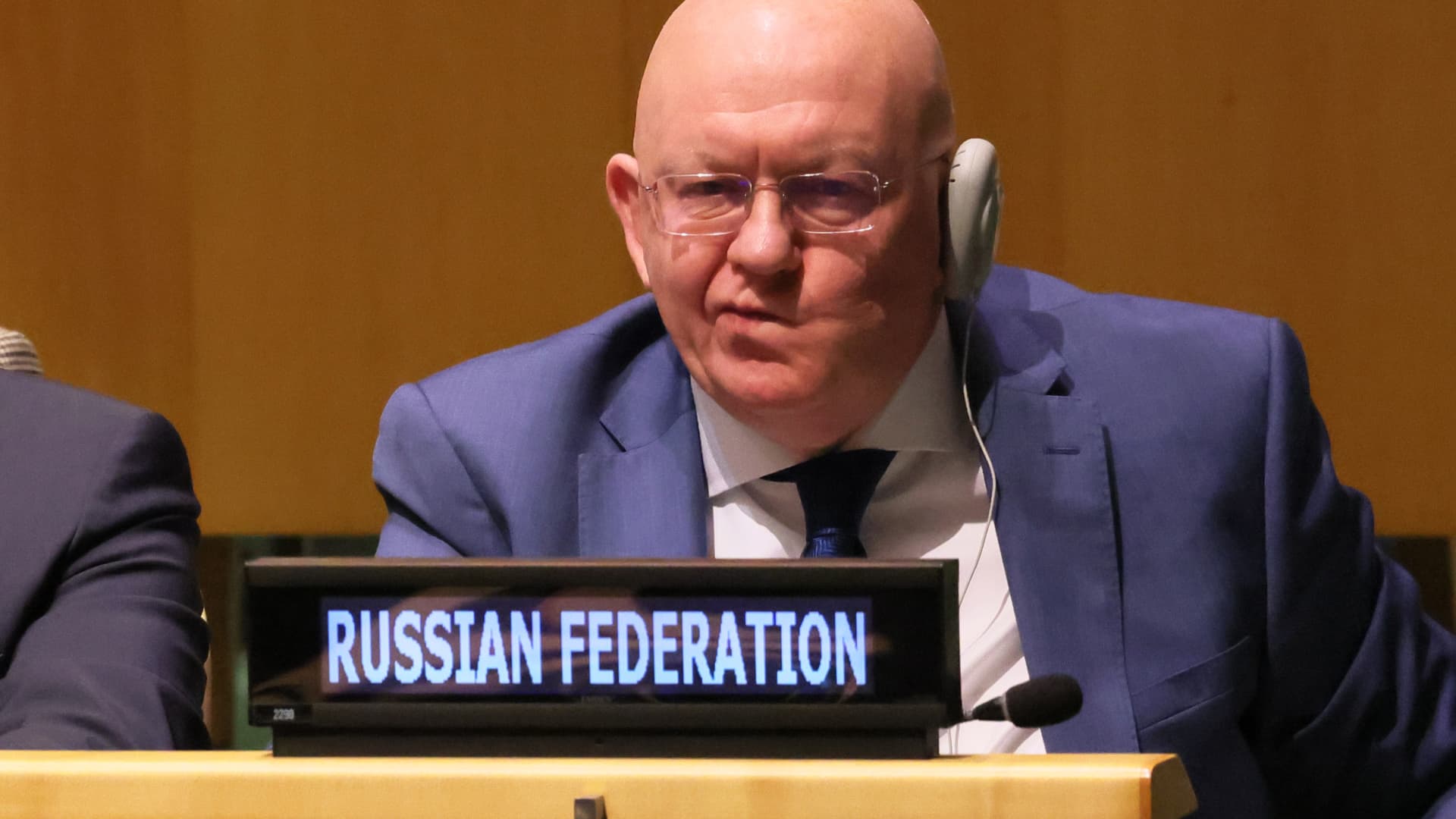
Russia's U.N. ambassador Vasily Nebenzya responded by claiming Russia was "conducting strikes against the infrastructure in response to the unbridled flow of weapons to Ukraine and the reckless appeals to defeat Russia."
He also claimed that "weakening the military capacity of the Ukrainian army, which threatens the security and territorial integrity of Russia, is one of the goals of this special military operation and it will be carried out by military means until the Kyiv regime adopts a realistic position."
— Holly Ellyatt
Energy official says situation at damaged nuclear plant is 'precarious,' calls for urgent safety measures
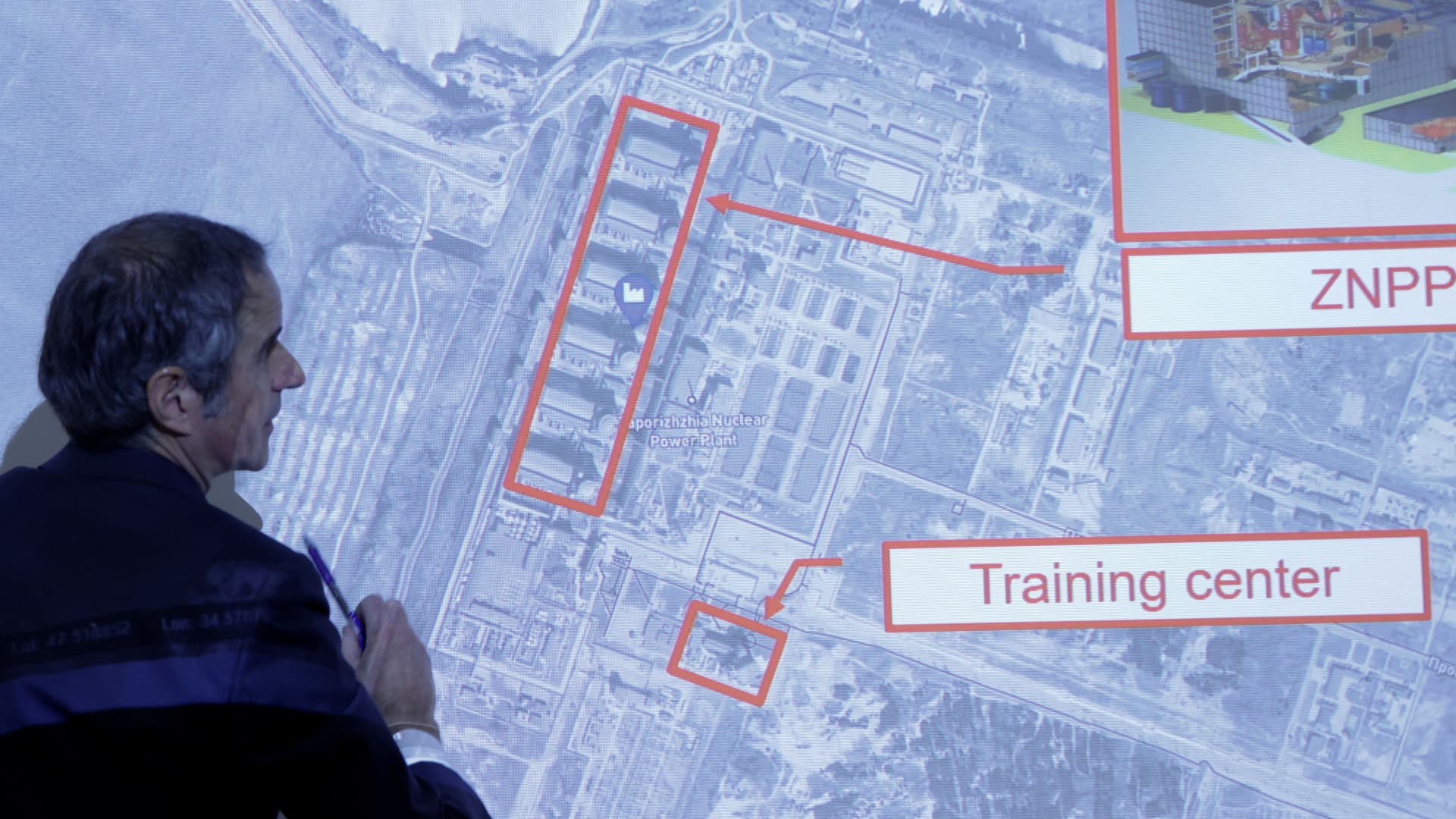
The International Atomic Energy Agency spoke out for the second time this week about the 'precarious' position of the Zaporizhzhia Nuclear Power Plant. Over the weekend, the plant was damaged by heavy shelling and on Wednesday it was forced to go into "full blackout mode" due to continued Russian missile strikes.
"The latest incident at the ZNPP highlights the increasingly precarious and challenging nuclear safety and security situation at Europe's largest nuclear power plant, coming just a few days after it was repeatedly shelled," Director General Rafael Mariano Grossi said.
Grossi also underscored the need for an off-site power supply to nuclear sites as one of the seven indispensable pillars for nuclear safety during armed conflicts, which Grossi outlined earlier this year. The plant is currently operating as if off-site power has been lost, relying on diesel generators.
"Reactors need power for cooling and other essential nuclear safety and security functions also when they are in shutdown mode and do not produce electricity anymore," the IAEA said in a statement. "In the case of an external power loss, they have emergency diesel generators that can provide back-up electricity for a limited period of time, at least for 10 days in the case of the ZNPP."
Grossi met a Russian delegation led by the Alexey Likhachev, director general of the Russian nuclear agency, Rosatom, in Istanbul earlier on Wednesday. The pair consulted on "operational aspects related to safety at the ZNPP and on the need to urgently establish a nuclear safety and security protection zone around the plant."
— Rocio Fabbro
U.S. says Russian strike on major power plant is risking a nuclear incident
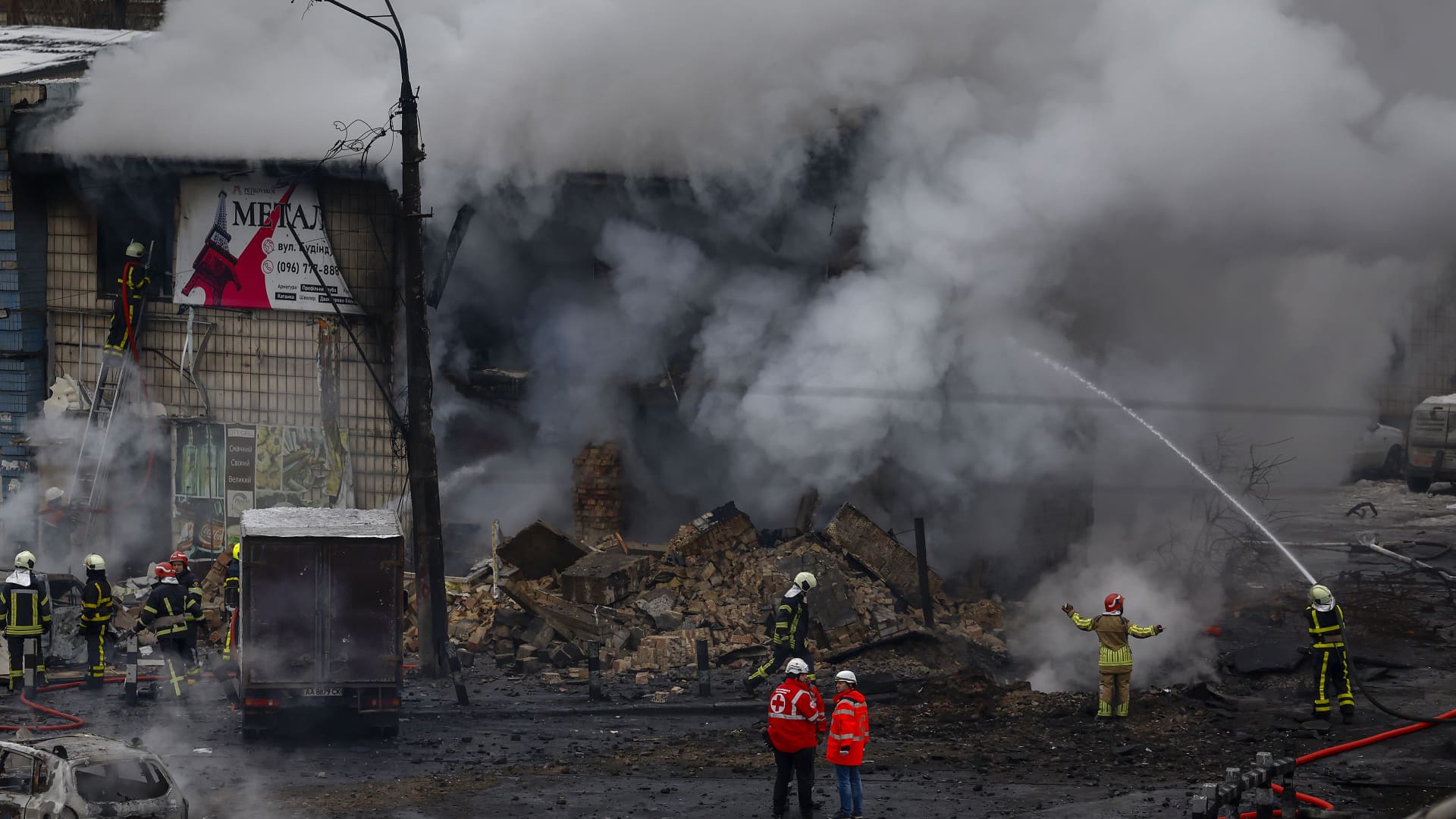
Russia's missile strikes directed at civilian targets do not have a military purpose but are instead intended to increase Ukrainian suffering and death, the U.S. National Security Council said Wednesday.
"As Russia struggles on the battlefield, it is increasingly turning to horrific attacks against the Ukrainian people with punishing strikes damaging energy grid infrastructure, and deliberately doing so as winter approaches," NSC spokesperson Adrienne Watson said.
Russian strikes have also recently heightened concerns about a possible nuclear incident. Shelling over the weekend damaged Europe's largest nuclear power plant, Zaporizhzhia, and Wednesday's strikes threw several plants into blackouts.
"It also shows Russia is willing to increase the risk of a nuclear safety incident that could not only further harm Ukraine, but affect the entire region as well," Watson said.
The NSC statement comes on the heels of U.S. President Joe Biden's authorization of another $400 million in defense capabilities for Ukraine.
— Rocio Fabbro
Read CNBC's previous live coverage here:
Kyiv's critical infrastructure hit by Russian rocket attacks; Ukraine to set up winter shelters






